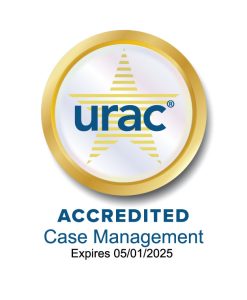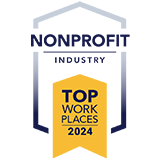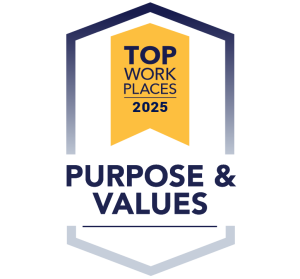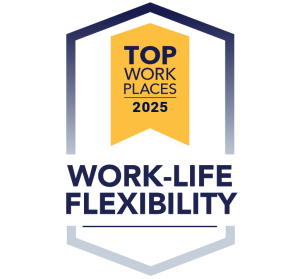By: Renee Dain, Sr. VP, Strategic Partnerships and External Affairs
Transition is defined as “the process or a period of changing from one state or condition to another.” When you think about your life’s trajectory, it’s incredible to reflect on the vast array of transitions you have experienced in all domains: physical, emotional, social, and cognitive. As adults, we know that transitions are inevitable, through our experiences such as moving into a new home or starting a new job, and small transitions, such as a change in daily routine. While the transition may be difficult, we learn to adapt and manage feelings of stress, anxiety, and nervousness.
For adolescents, the transition to adulthood is perhaps one of the most challenging times in a young person’s life. Leaving the routine of high school to the unpredictable transition to adult life can be even more daunting for a student living with disabilities and/or a complex medical need. This is because they are leaving secure supports that are mandated by law and moving into a system where services are less certain. While one child may transition smoothly, another may have difficulties, which can be impacted by their temperament, life experiences, and resiliency. Keeping child development in mind helps us understand children’s emotions and behaviors as they face transition.
We recently sat down with Alyssa Stoffel, Team Manager, Rare and Expensive Case Management (REM) Program and Sheryl Nickel, Clinical Care Coordinator, Model Waiver Program to learn more about the transition process.
At what age do young people typically begin the transition into adulthood?
Transitioning Youth (TY) is a term used for children ages 14 to 21 who are preparing to leave the school system, either through a certificate or diploma track in high school. Students with disabilities should begin the transition planning process no later than age 16. At The Coordinating Center we recommend supporting students and families with the transition process as early as 14, which is especially important in preparing for the transition to adult healthcare. Within the school system, for students participating in the Individualized Education Program (IEP), transition planning is a part of the IEP process. The transition planning process is designed to help students with disabilities prepare for life after high school, ensuring they have the skills and support needed to achieve their goals in areas such as higher education, vocational training, employment, adult services, independent living, or community participation.
For students living with an intellectual or developmental disability, the Maryland DDA has a special category of eligibility and priority for services through the Governor’s Transitioning Youth Initiative for people 21 through 22 years of age. This makes it possible for the DDA, working with the Division of Rehabilitative Services (DORS), to fund employment services and other day services for eligible students leaving school who otherwise may have gone on the DDA Waiting List. A student is eligible from their 21st birthday until their 22nd birthday to apply for DDA services. If their date of graduation is after the student’s 21st birthday, they are eligible for one year after the date of graduation to apply.
What role can care managers (e.g., care coordinators and supports planners) play in supporting transitioning youth and their families?
One of the best ways adults can support adolescents with the transition process is to start early. Parents, caregivers, teachers and care managers can play an important role in supporting young children through transition. Adults can ensure that children feel protected and nurtured, transforming transitions into learning opportunities that bolster development across all areas of a child’s life.
Care managers at The Coordinating Center are trained to support adolescents and families through the transition process. For youth living with complex medical needs and/or disabilities we can support and/or facilitate the transition to adult healthcare. We recognize how daunting this can be, as the population we serve require specialized and coordinated care. Establishing new relationships with providers who may not have the same level of expertise or understanding of their specific conditions can lead to feelings of anxiety and insecurity. There’s also the challenge of self-advocacy and healthcare management, which needs to be taught early.
There are many other aspects of the transition to adulthood that Care Managers can help facilitate. We can support students with the transition to post-secondary life (e.g., education or training, employment, and, when appropriate, independent living skills) through advocating for transition planning and services during the Individualized Education Program (IEP) process. We can also support students with intellectual and/or developmental disabilities access transition youth services through the Maryland Department of Developmental Disabilities (DDA).
What are some helpful tools for adolescents and families?
There are a lot of great resources out there. One of the tools we encourage families to review is The Coordinating Center’s Milestone Checklist, which starts through birth through the transition to adulthood. Click HERE to access the checklist.
For families looking for resources related to healthcare transition, we recommend the following Got Transition tools:
- Overview
- Transition Readiness Assessment for Youth
- Transition Readiness Assessment for Youth (Spanish)
- Transition Readiness Assessment for Parents/Guardians
- Transition Readiness Assessment for Parents/Guardians (Spanish)
Students with intellectual and developmental disabilities should consider services through the Maryland Developmental Disabilities Administration. At The Coordinating Center, we are a provider for Coordination of Community Services, a DDA program. Click HERE to learn more.
View the webinar presented by Alyssa Stoffel and Sheryl Nickel on April 16, 2024 HERE.
Alyssa Stoffel, MS, RN, CPN, CCM, Team Manager – Contract Support, REM has nearly 20 years of experience in the human services field in various roles focused on ensuring meaningful community life for individuals with complex medical needs and disabilities and has been with The Coordinating Center for just under nine years.
Sheryl Nickel, BSN, RN, CPN, CCM, Clinical Care Coordinator, Model Waiver has 16 years of experience in the human services field and has been with The Coordinating Center for just under seven years.
The Rare and Expensive Case Management (REM) Program is Maryland’s, case managed, fee for service alternative to HealthChoice Managed Care Organization (MCO) participation. The REM Program is for individuals receiving Maryland Medical Assistance with a qualifying diagnosis that is rare in occurrence and expensive to treat. The purpose of the program is to provide community-based care coordination services for people with specialized health care needs, providing access to high quality, medically appropriate health care services in a cost-effective setting outside of a managed care organization.
Model Waiver is a Maryland Medicaid program, which allows medically fragile individuals, before the age of 22 years to live at home. Without this benefit, these individuals would be hospitalized, as their medical needs require hospital or nursing facility level of care. Under the Waiver, the parents’ income and assets are waived during the financial eligibility process even though the child continues to live in the community with their parent(s).







